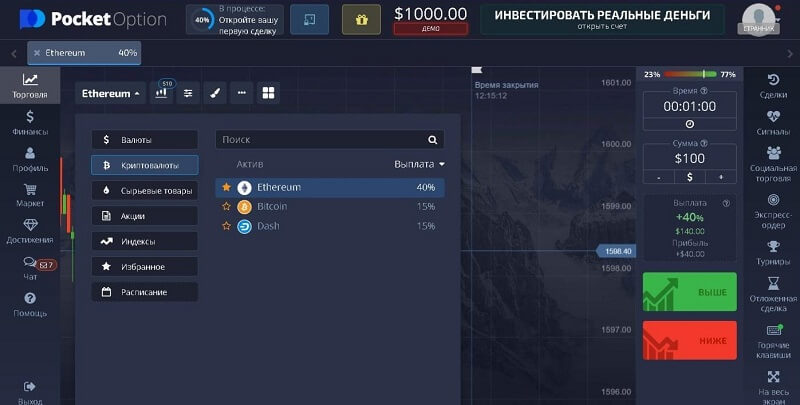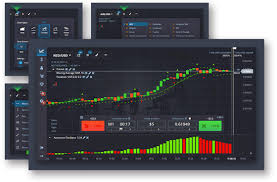
The Pocket Option AML Policy Pocket Option AML Policy is an essential framework designed to combat financial crime and ensure compliance with international regulations. In the world of online trading and investment, maintaining security and integrity is paramount. As such, companies like Pocket Option have implemented stringent anti-money laundering (AML) policies to protect their clients and the overall integrity of the financial system. This article delves into the key elements of Pocket Option’s AML Policy and its implications for traders and investors.
Understanding Anti-Money Laundering (AML)
Anti-money laundering refers to the regulatory and legal measures designed to prevent the practice of generating income through illegal actions and disguising such income as legitimate. Money laundering is a global issue that affects every aspect of finance, and the introduction of AML policies helps to mitigate these risks.
AML measures typically include customer verification processes, ongoing monitoring of transactions, and reporting suspicious activities to relevant authorities. For companies like Pocket Option, adherence to AML regulations is not just about compliance; it’s about fostering trust among users and promoting a secure trading environment.
The Importance of AML Policies in Online Trading
Online trading platforms are particularly vulnerable to money laundering activities due to the anonymity they offer. Without effective AML measures, these platforms can be exploited for illegal business, leading to significant financial, legal, and reputational repercussions. The adoption of robust AML policies, therefore, becomes essential not only for compliance purposes but also to maintain the integrity of the trading environment.
Incorporating comprehensive AML protocols helps online trading platforms prevent financial crimes, thereby enhancing their credibility and trustworthiness. For investors, knowing that a platform adheres to strict AML regulations instills confidence and promotes a safer trading atmosphere.
The Key Components of Pocket Option’s AML Policy
Pocket Option’s AML Policy is built on several core principles aimed at preventing money laundering and terrorist financing. These components include:
1. Customer Due Diligence (CDD)
Pocket Option employs thorough Customer Due Diligence (CDD) procedures to verify the identity of their users. CDD involves collecting essential information from clients at the point of onboarding. This process typically includes verifying the client’s name, address, date of birth, and, in some cases, their source of funds. By ensuring that all users are properly identified, Pocket Option minimizes the risk of fraudulent activities.

2. Enhanced Due Diligence (EDD)
In cases where clients are considered high-risk, Pocket Option implements Enhanced Due Diligence (EDD) measures. Clients may be categorized as high-risk based on various criteria, including their geographic location, the nature of their business, or their trading behavior. EDD involves a more in-depth investigation into the client’s background and transaction history, ensuring that any potential risks are effectively managed.
3. Monitoring and Reporting
Pocket Option has established ongoing monitoring systems to track transactions in real-time. This allows the company to detect unusual activity and respond swiftly to any potential money laundering attempts. If suspicious transactions are identified, Pocket Option is obligated to report them to the relevant regulatory authorities as part of their commitment to AML compliance.
4. Staff Training and Awareness
Employee training is a crucial aspect of Pocket Option’s AML Policy. Staff members receive comprehensive training on AML regulations and the company’s policies to ensure they are well-equipped to identify and respond to suspicious activities. By promoting awareness and understanding of AML measures, Pocket Option creates a culture of compliance within their organization.
Regulatory Compliance and Cooperation
Pocket Option is committed to complying with the legal frameworks set forth by regulatory authorities in the jurisdictions where they operate. This commitment includes cooperating with law enforcement agencies and regulatory bodies in investigations related to financial crimes. By working in tandem with authorities, Pocket Option ensures that their AML efforts are aligned with broader efforts to combat money laundering on a global scale.
The Role of Technology in AML Practices
In the digital age, technology plays a significant role in enhancing AML practices. Pocket Option leverages advanced software solutions to monitor transactions, analyze client behavior, and identify patterns indicative of money laundering. These technologies enable the platform to conduct real-time risk assessments, streamline compliance processes, and improve the overall efficiency of their AML program.
Conclusion
The Pocket Option AML Policy stands as a testament to the importance of protecting the financial system from the threats posed by money laundering and illegal activities. By implementing rigorous customer due diligence, ongoing monitoring, and employee training, Pocket Option fosters a secure trading environment that benefits clients and upholds the integrity of the financial markets.
As an online trader, understanding the measures in place to protect your investments is vital. Choosing a platform like Pocket Option, which takes its AML obligations seriously, ensures that you are trading in a safe and regulated environment, ultimately paving the way for a responsible and secure trading journey.

